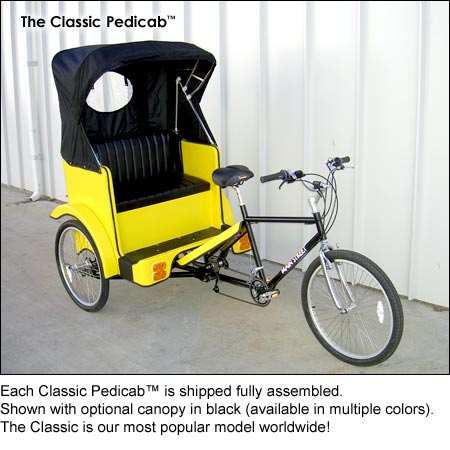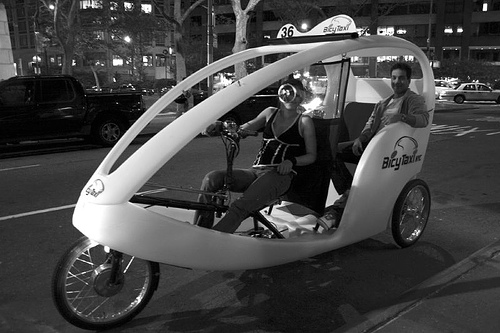
Maybe you’ve seen them traversing the busy weekend streets of Bardstown Road and Baxter Avenue: Pedicabs, also known as bicycle rickshaws, are becoming a common sight in major cities across the globe. Among the North American hotspots for bike taxis are Portland, Oregon, New York, New York, and Denver, Colorado.

During last month’s Democratic National Convention in Denver, the Wall Street Journal gave the emerging transportation technology some press time:
Owners of bicycle rickshaws, already a popular way of getting about downtown Denver, are seizing on the Democratic National Convention as a chance to showcase their human-powered taxis as more than just a novelty.
Steve Meyer, owner of one of Denver’s largest fleets of pedicabs and a manufacturer of the vehicles, wants the convention’s national audience to see bike taxis as a dynamic part of the urban fabric and the ultimate in green transportation…
Bike-pedaled rickshaws took off in the U.S. scene in the early 1990s, in large part due to Mr. Meyer’s promotion. He got them recognized early on as part of the mix in revitalizing Denver’s downtown pedestrian mall.
Fares are generally more than a taxi (hey, powering a pedicab is tough work), but distances are shorter and geared towards urban areas. In Denver, the maximum fare per block is $2.00. Purchasing your own pedicab runs just under $4,000 but most drivers rent from a larger company, work as they please, and keep the fares they earn.
- Defying Convention, Denver Pedicabs Seek a Leg Up (Wall Street Journal)
- For the Best in Transportainment, Try a Pedicab (StreetsBlog)
- Cycle Rickshaw (Wikipedia)
- Main Street Pedicabs (Official Site)


